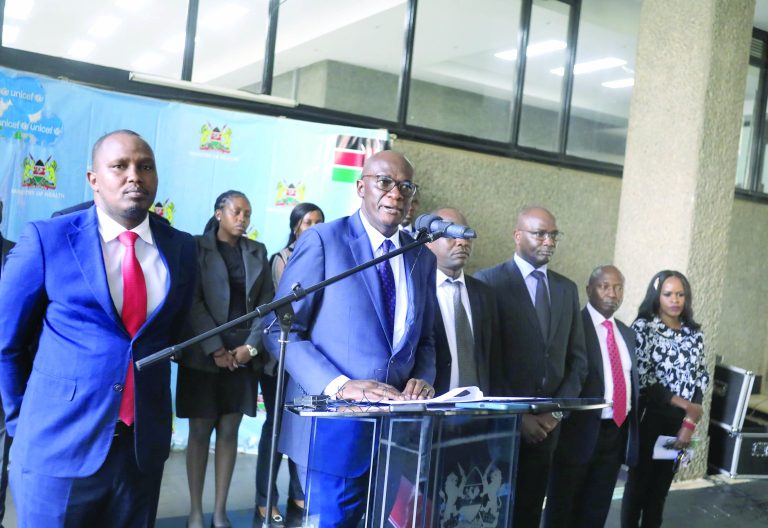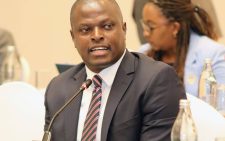State gives assurance over supply of HIV medication

The government has moved to allay fears over the suspension of health funding by the US with an assurance that there are enough HIV/Aids medical supplies to last the country at least six months.
Director General in charge of Health at the Ministry of Health Dr Patrick Amoth said the government has strengthened the country’s supply chain pipeline in the last two years.
At the same time, he revealed that the government was actively engaging with other development partners to secure alternative resources that will help in filling the gaps in the supply of essential medicines.
“This is to ensure that at any given time we have more than six months of stock,” he said at Afya House during the ministry’s weekly media briefing on the state of health in the country.
Global practice
Dr Amoth stated that there are sufficient antiretroviral stocks to last the country for the period allowed within the law as the Kenya Medical Supplies Authority (Kemsa) was directed to ensure that the country is adequately supplied.
“We are told globally as a best practice that if you run a big programme like the one we run, where we have nearly 1.4 million Kenyans on treatment, then you must be able to ensure that you have your plan B,” he said, asserting this enables the government to be able to address any contingencies that would arise, either deliberately or out of events outside the country’s control.
Out of this, he said the government has a strong successful programme that has seen more than 1.4 million persons on treatment, and are on target in the three 95 global targets. This, he explained, means that 98 per cent of the Kenyan population know their HIV status, and out of those who know their HIV status, again, 98 per cent are on treatment, and a similar target for those virally suppressed.
However, he regretted that due to the challenges arising from the continued Mother to Child Transmission, the viral suppression has remained at 94 per cent.
“In response to these challenges, Kenya is taking proactive measures to mitigate the negative effects and ensure the continuity of healthcare services,” said the director, explaining that the ministry is actively engaging with other development partners, international agencies, and private sector stakeholders to secure alternative resources.
Kenya is also emphasising regional and global solidarity to support health financing, he said, noting this will ensure that critical healthcare services continue to reach those in need.
Since US President Donald Trump signed the Executive Order, revising the country’s financial support for its health programmes abroad, more than 1.4 million Kenyans living with HIV have quietly been living in anxiety: what next?
Funding gap
This situation heightened over the weekend with many of them going to various social media platforms to express their unease. Their anxiety is also shared by various non-state actors who have been supporting the HIV programmes at advocacy level.
“The pause on the President’s Emergency Plan for Aids Relief (PEPFAR) threatens to erode two decades of progress in Kenya’s fight against HIV/Aids, leaving patients, healthcare workers and officials scrambling for alternatives,” said a member of Health NGOs Network (HENNET).
President of the International AIDS Society Beatriz Grinsztejn, in a press interview, described it as a “matter of life or death”. “Pepfar provides life-saving antiretrovirals for more than 20 million people and stopping its funding essentially stops their HIV treatment. If that happens, people are going to die and HIV will resurge,” she said.
However, Amoth maintained that Kenya was prepared for these uncertainties, having a focus on strengthening local capacity to address the funding gap.










